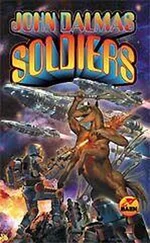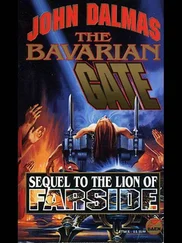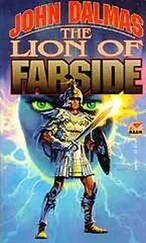John Dalmas - The Yngling
Здесь есть возможность читать онлайн «John Dalmas - The Yngling» весь текст электронной книги совершенно бесплатно (целиком полную версию без сокращений). В некоторых случаях можно слушать аудио, скачать через торрент в формате fb2 и присутствует краткое содержание. Жанр: Фэнтези, на английском языке. Описание произведения, (предисловие) а так же отзывы посетителей доступны на портале библиотеки ЛибКат.
- Название:The Yngling
- Автор:
- Жанр:
- Год:неизвестен
- ISBN:нет данных
- Рейтинг книги:5 / 5. Голосов: 1
-
Избранное:Добавить в избранное
- Отзывы:
-
Ваша оценка:
- 100
- 1
- 2
- 3
- 4
- 5
The Yngling: краткое содержание, описание и аннотация
Предлагаем к чтению аннотацию, описание, краткое содержание или предисловие (зависит от того, что написал сам автор книги «The Yngling»). Если вы не нашли необходимую информацию о книге — напишите в комментариях, мы постараемся отыскать её.
The Yngling — читать онлайн бесплатно полную книгу (весь текст) целиком
Ниже представлен текст книги, разбитый по страницам. Система сохранения места последней прочитанной страницы, позволяет с удобством читать онлайн бесплатно книгу «The Yngling», без необходимости каждый раз заново искать на чём Вы остановились. Поставьте закладку, и сможете в любой момент перейти на страницу, на которой закончили чтение.
Интервал:
Закладка:
Nils stood and answered the Polish king quietly. "You knew from the start that Kazi's strength was much greater than ours. But you chose to fight because the only other thing to do was worse. It still is. Now we can hurt Kazi most by killing more orcs. Without a strong army of orcs he'll lose his power over the chiefs of the horse tribes. But we can't get anything done by sitting here in the woods waiting to be attacked or letting him ride past us into the west. Tomorrow we need to send out a number of small patrols to learn where the enemy is camped and what he is doing."
"And then what?" Casimir challenged. "What will we do then?"
"We'll know when they come back. But it will be… as much as you could wish."
"Do not underestimate what I can wish, Northman."
Nils laughed, not derisively nor tactically but in open pleasure and admiration, startling the knights. "Let me correct my words," he said. "We will do as much, at least, as you might hope for."
"And how do you divine this?"
"I don't divine and I cannot say how, but it will happen."
By the following evening the patrols were returning. Several had found newly abandoned enemy campsites while two reported a huge new camp. Bunches of cattle were being driven there, and the fumes of many fires suggested that meat was being smoked.
"It sounds to me," Casimir said gruffly, "as if Kazi has gathered his whole army together to pass us by and move west. Apparently we're too few to trouble with any longer." He looked at Nils. "What do we do now, Northman?"
A sentry hurried into the circle of firelight. "M'Lords," he broke in. "A patrol has brought a prisoner."
"When did we start taking prisoners?" Casimir growled.
"Not an enemy prisoner, Your Highness. It's a foreigner. There are a lot of them, sir-men, women and children-and this patrol ran into some of their scouts. The one they brought in speaks Anglic and offered to go with the patrol so that we wouldn't attack his people."
"Attack his people? We've got too many enemies already. What kind of people are they?"
"The one the patrol brought in says they're Finns, Your Highness, whatever Finns are, and that the whole race of them left their homeland in the north."
"Bring him here," Nils ordered. "I know a little about Finns. Maybe there'll be some help for us here."
The man was Kuusta Suomalainen; Nils sensed his idenitity and also his psi before he could see him. The man had been trained.
The Finns totalled nine thousand, including nearly two thousand fighting men, but none were knights or warriors in the neoviking sense. They were roughly equivalent to the neoviking freeholders-independent, vigorous and tough, but with modest weapons skills except for excellent marksmanship. With a few others, Kuusta had been scouting a day ahead of the main body of migrants and saw the end of the battle between the knights and the horse barbarians. They had returned to their people then, and their headmen had elected to continue into the war zone, taking their chances on getting through safely.
"There is no safety," Nils told him. "Not anywhere in Europe while Kazi is alive. He has perhaps twenty thousand men while we have about four thousand. Sit and listen awhile, old friend. Maybe before the council is over, you'll offer your help."
The others deferring to him, Nils questioned the patrol leaders carefully. The Kazi camp was near the west bank of a river, in a long stretch of prairie some four to six kilometers wide that extended from great marshes on the north southward along the river for tens of kilometers. On the east side of the river, and protected by it from prairie fires, stood a forest.
Local knights knew the place. The river, although sixty or eighty meters wide, could be easily crossed at this season, when water levels were low and currents weak. But the steep banks were troublesome.
When no one else had any more information, Nils outlined his plan. There were more unknowns in the situation than any leader would like, but there was no time to scout the site himself. "This is our chance," he said. "We don't know how long they'll stay there, and if we miss it, we're not likely to get another as good. Tomorrow we'll rest and tomorrow night we'll ride." He turned to Casimir. "And don't feel left out, good friend. You'll have other chances, and the firesetters will be yours. But this action takes stealth and foot soldiers, so it has to be ours."
The next day Kuusta Suomalainen arrived with four hundred volunteers, brown-faced and sinewy, their quivers stuffed with arrows. The rest of the Finns would wait for the survivors to return.
The waxing moon gave good light until nearly dawn. Crouching quietly in the forest some distance from the river bank, the northmen tested the air for a breeze. Too many things could go wrong. At least there did not seem to be an east wind, although down among the trees a light breeze might go undetected. But they could smell the enemy horses across the river to the west. And while the clear night had lowered the temperature almost enough for another freeze, the air was dry enough that, even in the open, there was likely to be little dew on the grass.
Nils had slipped ahead and lay in the brush at the top of the riverbank, two meters above the water. Psi sentries would not detect his single quiet mind. In the dim light of dawn he could see thousands of horses in a great paddock that lay between the far bank and the enemy tents.
Finally the sun rose, brightening the kilometers of tall tawny grass beyond the enemy camp. Orcs and barbarians began to stir among the horses. A breeze came up, a good west breeze, and Nils could smell the horses strongly.
Back in the forest, men lay with the patience of those who hunt for their living.
Foreign thoughts mumbled faintly at the fringes of his awareness, a psionic background to the morning. As the sun slowly climbed, the breeze became brisk, and then he saw several lines of smoke across the prairie. They grew as he watched, coalescing.
He wiggled backward through the brush, got up, and slipped back to his men. The order passed down the line in both directions, in soft Scandinavian and by gestures to the Finns. Quietly, then, they moved toward the river, the freeholders and Finns selecting suitable trees along the bank.
Through the screen of vegetation they could see and hear some of the growing excitement in the enemy camp. Trumpets blew and men hurried about. The smoke of the distant prairie fire had grown to a tall curtain. Northmen and Finns reached back over their shoulders to make sure their arrows were within ready reach and came easily from the quiver. Barbarians and orcs began to trot into the horse park carrying saddles and gear, while others caught and soothed nervous horses. The freeholders and Finns started up their chosen trees with helpful boosts, keeping behind the trunks. Within a few moments a unit of orcs had mounted and were moving down the bank into the water. When they were two-thirds across, a war horn blew.
For half an hour arrows hissed into the ranks of soldiers. At first there were both orcs and horse barbarians in roughly similar numbers. Some made it across piecemeal, to die fighting at the top of a bank that grew slippery with splashings of water and blood. After a bit the horse barbarians stopped coming and could be seen riding along the bank in both directions, trying to outflank the long wall of flame accelerating toward them. But the disciplined mail-clad orcs kept coming. Many took arrows and disappeared. Some drowned in the deeper water when their horses were killed under them. Many scrambled out on foot, slipping and swearing, to face the deadly blades above them, or spurred dripping, falling horses up the bank. One by one they established bridgeheads and fought to expand them. Freeholders and Finns began to jump from the trees, quivers empty, running back through the forest to the place where the horses were tied. A war horn signalled that the enemy was crossing in force below the south flank of the neoviking line, and the warriors too began to run for their horses, shouting and crowing.
Читать дальшеИнтервал:
Закладка:
Похожие книги на «The Yngling»
Представляем Вашему вниманию похожие книги на «The Yngling» списком для выбора. Мы отобрали схожую по названию и смыслу литературу в надежде предоставить читателям больше вариантов отыскать новые, интересные, ещё непрочитанные произведения.
Обсуждение, отзывы о книге «The Yngling» и просто собственные мнения читателей. Оставьте ваши комментарии, напишите, что Вы думаете о произведении, его смысле или главных героях. Укажите что конкретно понравилось, а что нет, и почему Вы так считаете.








